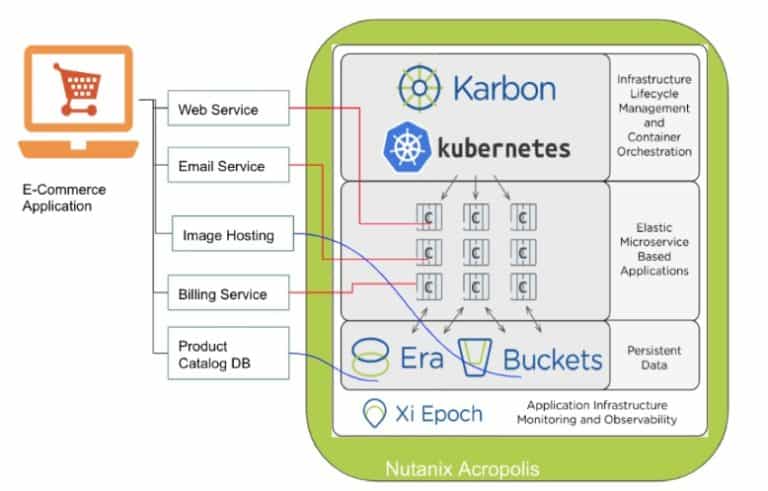Nutanix has released a new version of its Kubernetes management tool Karbon. Version 2.1 makes it easier for users to use container-based applications cloud-native on the Nutanix platform.
Nutanix wants to make it easier for Kubernetes users to run container-based applications cloud-native on its own platform with its Karbon management application. The tool provides a framework that can both build and run container-based applications.
In version 2.1 of Karbon – which follows release 2.0 in February of this year – several new features have been added. The added functionality mainly includes improvements in the field of networking, storage and APIs.

Support of Calico
In the area of networking, the open-source standard Calico was chosen in Karbon 2.1 to be the standard Kubernetes Container Network Interface (CNI). This should further simplify network and security management. Calico is technically the normal standard for adding networking to containers.
Calico’s code is derived from Tigra. Because Calico has now been added to the Kubernetes tool of Nutanix, developers and cluster operators get a more consistent experience and more (network) capabilities for Kubernetes environments. This should speed up the entire Kubernetes process.
Other functionality
In the field of storage, version 2.1 of Karbon now adds storage volume cloning and expansion. According to Nutanix, this should provide more data protection. The extensive API improvements, such as API hooks, enable Karbon to collaborate with, among others, Nutanix Calm and ServiceNow. This way, it is also possible to collaborate with other APIs that use API calls.
The advantage, according to Nutanix, is that this leads to more automation and a more detailed offering of Kubernetes clusters.
Tip: What is Nutanix and how it conquers the hybrid and multi-cloud world
